Mobility
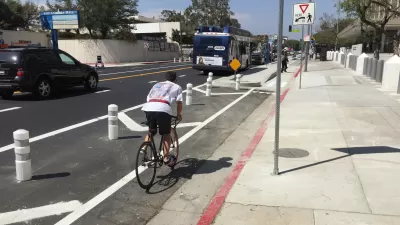
Opinion: Los Angeles Must Prioritize Bikes and Buses
L.A. has a plan for improving mobility. Why are city leaders ignoring it?
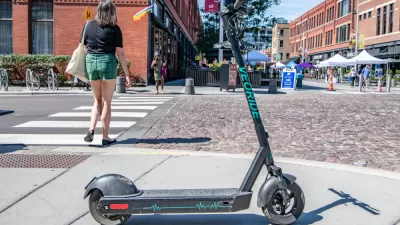
Lessons From Five Years of E-Scooters
As cities continue to adapt micromobility regulations to address new devices and technologies, what can we learn from Chicago's five years of e-scooter pilots?

Coupling Housing and Mobility: A Radical Rethink for Freeways
An ambitious vision for freeways: intersections with dense, tall buildings and rights of way repurposed for high-speed, high-capacity public transit.
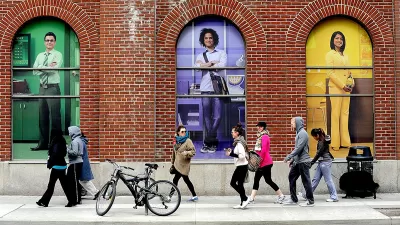
Americans Walk More Than Ever
An analysis of searches for walking directions shows dramatic increases in walking in cities across the country.
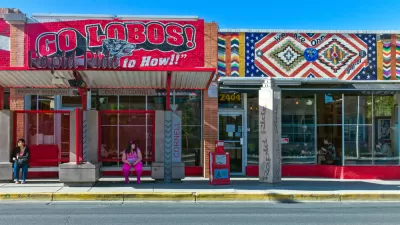
Transit Goes Fare-Free for One Year in Albuquerque
Albuquerque will become one of the largest cities in the nation to launch a fare-free pilot program for transit riders.
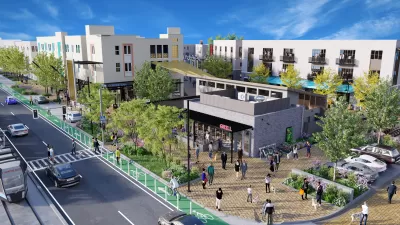
Nation's First 'Zero-Driving Community' Takes Shape in Tempe
Slated to open in 2022, Culdesac Tempe contractually forbids personal vehicles from parking within a quarter-mile radius of the project site.
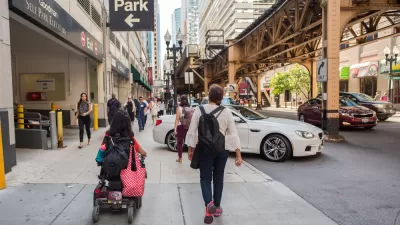
Centering Non-Drivers Would Improve Infrastructure for All
Inadequate infrastructure disproportionately harms people with mobility challenges who can't or don't drive, but their needs closely mirror those of all pedestrians.
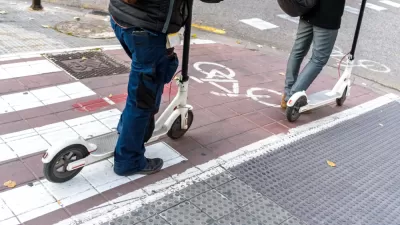
Planning for New Mobilities: Preparing for Innovative Transportation Technologies and Services
New mobilities—emerging transportation technologies and services—have tantalizing potential. They allow people to scoot, ride, and fly like never before. However, they can also impose surprising problems. How should communities prepare?
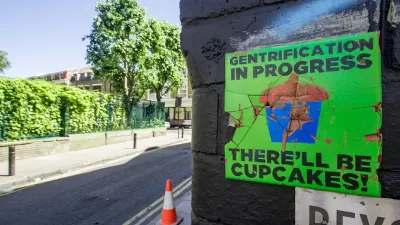
'Gentrification' Is Not the Real Problem
The conversation about gentrification continually repackages a set of debunked theories as reality and it obscures a set of real crises that need fixing.
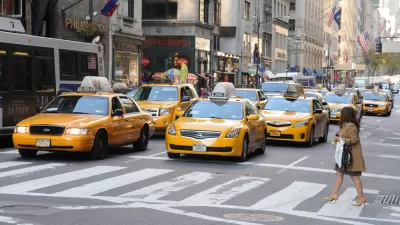
Ride-Hailing Prices Skyrocket as the U.S. Emerges From the Pandemic
A shortage of drivers and spiking demand are driving Uber and Lyft prices higher than ever as the companies struggle to achieve profitability.
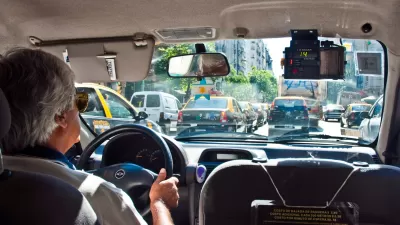
Human Movement, Captured by a 'Very Clear' Mathematical Law
The "universal visitation law of human mobility" documented in a newly published study in Nature offers predictive power for urban mobility in addition to empirical validation of Central Place Theory.
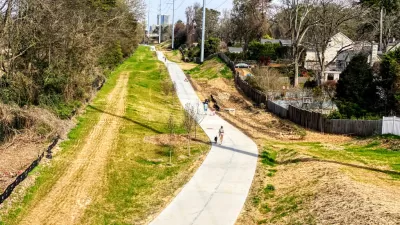
New Beltline Segment Opens in Atlanta
The first phase of a new 0.9-mile segment of the Atlanta Beltline, known as the Northeast Trail, is now open for recreation and active mobility.
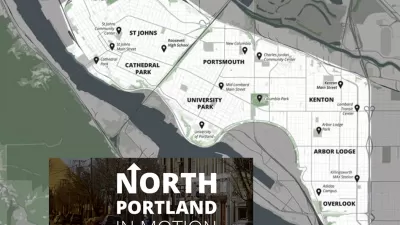
North Portland in Motion Launches with Goals to Improve Walking, Biking, and Transit
The Portland Bureau of Transportation continues its work of drafting transportation plans targeted to specific geographic corners of the city,
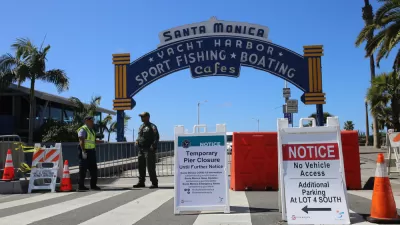
How COVID-19 Impacted Mobility in California
Analysis of cell phone location tracking data shows changes in how Californians have moved around since the pandemic.
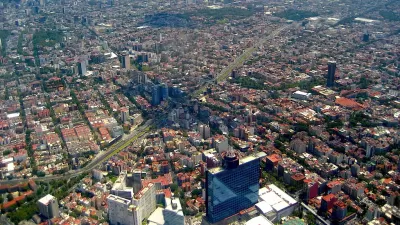
A Compact, Connected, Clean, and Inclusive Recovery for Mexico
As the Mexican government charts the country’s recovery from COVID-19, a newly published paper charts national solutions to urban transportation and housing challenges that will put Mexico’s cities on a path to prosperity and resilience.
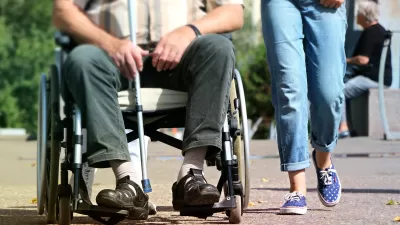
What the Livability Index Shows About Housing
A new report highlights inequalities in accessibility and affordability.
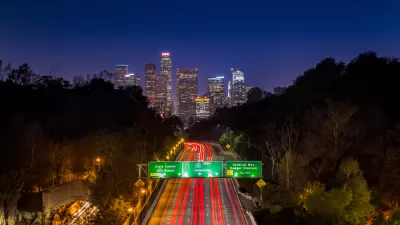
New Climate Leadership in Transportation at the California Assembly
California Assembly Transportation Committee Chair Laura Friedman shares policy priorities for reducing emissions, eliminating traffic fatalities, and improving the connectivity of urban regional light rail in Southern California.
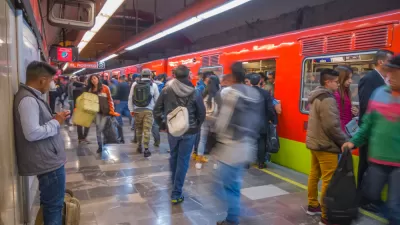
Mexico Amends Constitution to Declare Safe Mobility a Human Right
Mexico recently ratified an amendment to its constitution to make safe mobility a human right. The amendment comes in response to unsafe conditions on the country's streets, roads, and highways.

Location Data Could Unlock a Less Car-Centric Future
A report from the Brookings Institution shows how planners can use new types of anonymized data to inform mobility planning decisions.
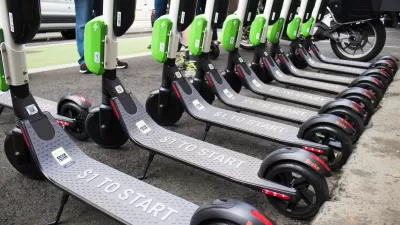
Doing Urban Mobility Pilot Programs the Right Way
Pilot programs can offer useful insight to decisionmakers, but they need to be done for the right reasons and with clear goals and plans.
Pagination
Urban Design for Planners 1: Software Tools
This six-course series explores essential urban design concepts using open source software and equips planners with the tools they need to participate fully in the urban design process.
Planning for Universal Design
Learn the tools for implementing Universal Design in planning regulations.
Smith Gee Studio
City of Charlotte
City of Camden Redevelopment Agency
City of Astoria
Transportation Research & Education Center (TREC) at Portland State University
US High Speed Rail Association
City of Camden Redevelopment Agency
Municipality of Princeton (NJ)


































